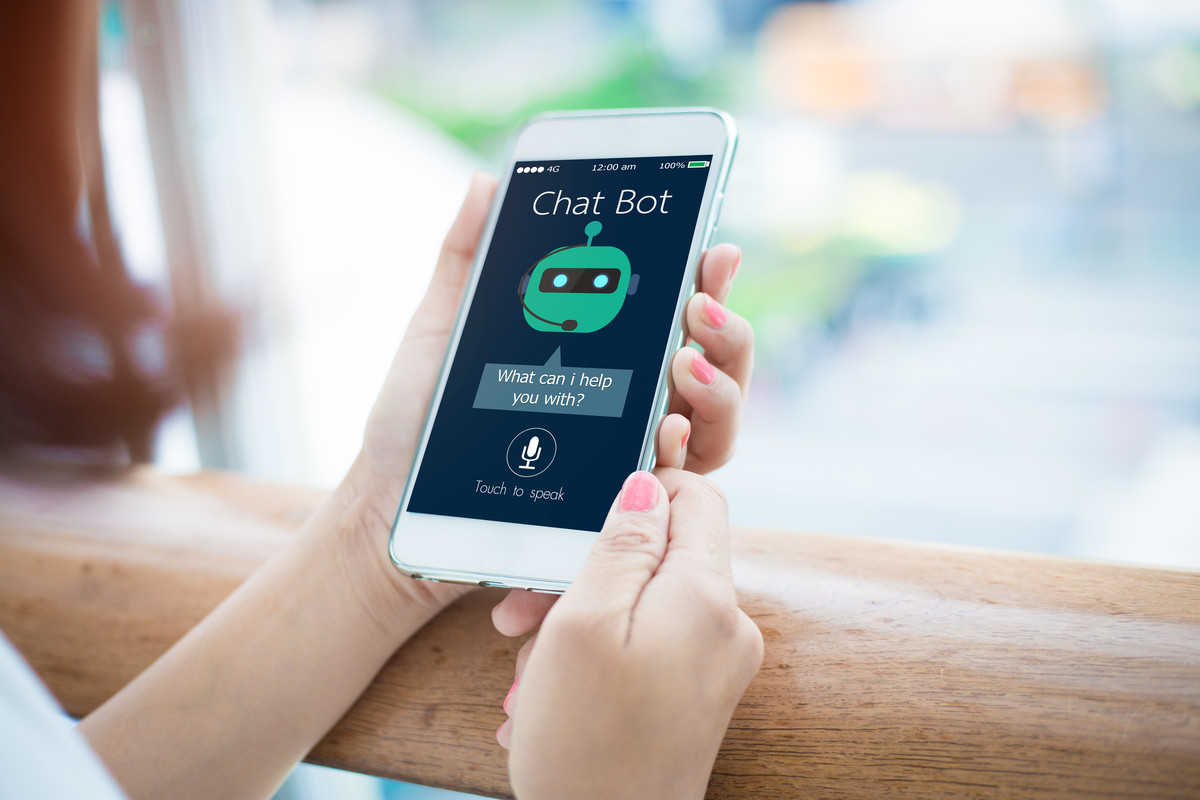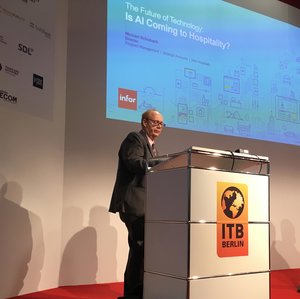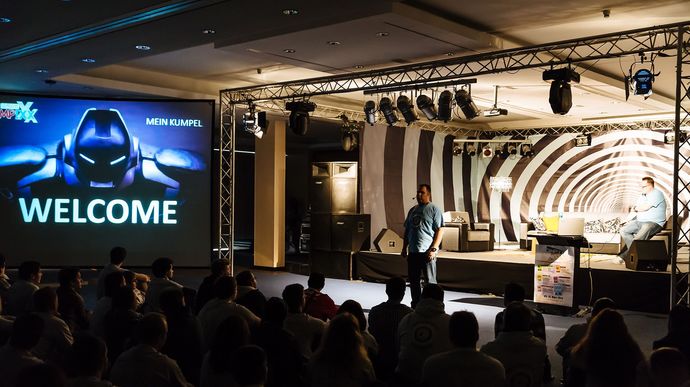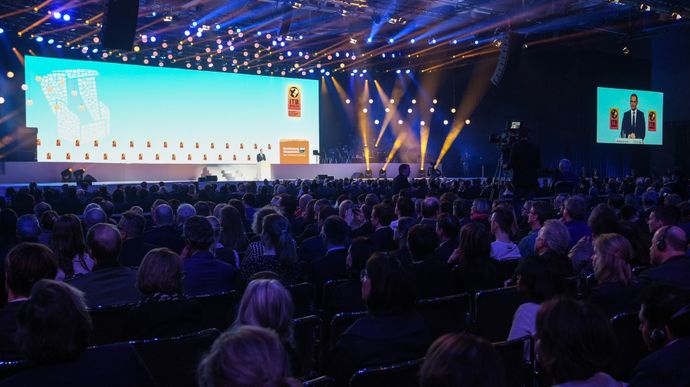Artificial Intelligence in hospitality
An interview with Michael Schubach, Strategic Deployments / Program Management Director - Hospitality at infor

Chatbots are meant to change the way we are communicating today. They can either work with a predefined set of questions or are a learning Artificial Intelligence (AI) which will get better over time and is capable of more complex conversations. The basic bot is able to tell you the nearest train station while a more developed version will be able to make an appointment for you. As we are testing the different communication solutions of tomorrow already today, we had a chat with Mr. Schubach, a hospitality automation expert with forty years of experience in hospitality operations and information systems.
1. Some people prefer chatbots over interaction with a real human being. Should this concern us for the sake of humanity or for the people in customer-facing roles?
I think our concern should extend to the human community for both reasons: first because of our evolving comfort and social interaction with non-sentient human stand-ins, and second because we are in the process of outsourcing human labor and displacing livelihoods in favor of mechanized replacements. While not wanting to sound like I’m running through the village yelling that the sky is falling, I nonetheless believe that thoughtful individuals should not ignore or be surprised by the very obvious handwriting on the wall. Make no mistake: the world is evolving, along with its residents. There are repercussions from massive social change, and repercussions are precisely what we can reasonably foresee.
2. Chatbots are supposed to handle a higher magnitude of requests and be more cost effective. In your view, how much time should companies invest into a well-functioning chatbot, especially considering the ability and vocabulary to help their clients needs to grow with time?
I may not know your mathematical answer but I won’t cop out on you – here’s my best cocktail napkin calculation from an IT wonk who has had to justify other such projects: you know what your current spend is today, and you can project the rising costs of continuing on the same path for the next five years. You likely know your initial investment requirement to convert, and the net profit associated with technology replacing staffing over the same time period. If there were no profit over five years, I would question if this were the time to be considering this project, unless your company is willing to invest in order to be perceived as a high technology leader. I would think it would be reasonable to be cost neutral in two years, just months shy of the halfway point. This is to say that I would be willing to invest the first two-years of potential savings into assuring that the project is successful, making sure that contingency funds are available to make changes, refine the solution and deal with the unexpected consequences.
My second most important note: any project that budgets a more favorable outcome than the projected cost of continuing the status quo is a winner; management is already anticipating the status quo. My first most important note: never set an expectation that this type of project is a cost reduction or containment effort. Instead, position it as improving service, response, customer satisfaction and company reputation. Let the cost savings be the frosting on the cake – if you accidentally don’t save any money but manage to accomplish everything else, you’ll still be perceived as having hit the mark. Using this method, you will either be a hero or an amazing super hero. Neither of these are bad options.
3. Is there a measurable increase in conversion rate thanks to chatbots? 
Your chatbot vendor will tell you yes, so who am I to argue? But I would refer you to Question #2 above and remind you to keep your eye on the prize. If a measurable increase in conversion rate is what they’re selling and you’re buying, then you and your vendor had better be prepared to demonstrate that you got what you paid for, or you’ll both suffer the consequences. If you’re selling better service, higher satisfaction and smarter use of corporate funds, and you deliver all of that without any loss of conversion, you win. If you do all of the above and increase the conversion rate, you’re a living god. Remember the driving concept of customer satisfaction: commit carefully and over-deliver. You’ll always win.
4. Isn't the immediate chance to transfer to a human customer service rep an absolute must-have?
Yes, it is always and forever about options; the worst mistake anyone can make, particularly a hospitality specialist, is that one size fits all. Your chatbot project will infuriate those with special needs or concerns if there isn’t a non-bot option that allows them to be heard and served.
5. Is there a difference between the generations, especially when we look at Millenials?
It is true that those of the millennial generation are statistically more comfortable in a self-service environment than their elders. It is also true that Millennials comprise a giant wave moving through the world population, characterized by disproportional influence and impact on product offerings and service requirements. Nonetheless, I am living proof (assuming that this blog is posted rapidly) that there still are people in this world who are not members of the millennial generation. Additionally, there are also Millennials who do not fit their generational profile, and who will not behave as anticipated. Add the non-Millennials to the millennial outliers and throw in the special circumstances folks and you have more than enough reason to offer an alternative to automated assistance. And I’ll sound horribly redundant for the final time: if one of your primary goals is customer satisfaction, and you have customers who would be more satisfied speaking to a human rather than bot, can you reasonably expect to meet your satisfaction goals by refusing to offer them that option? There is a time and a place for the streamlined benefits of automation, and a time and a place for comparatively labor-intensive human interaction. Prepare to offer both, as your customers prefer.
6. Chatbots are just a part of the huge family of AI. Which element of AI do you see becoming the most important for hospitality, and why?
This question is easier to answer in the reverse: where would I not apply AI and why? That approach leads me back to the existential questions that individual hoteliers must answer for themselves: what is hospitality? What do we sell and what do we provide? Are we in the bed and bath commodity business or do we accommodate people in their lifestyle choices as they spend time as our guests?
If the answer were the former, that we are commodity providers, then I would do everything in my power to make that process and experience as fast, cheap and standardized as the market will bear. I would implement AI everywhere that cost justifies. I would make it my theoretical goal to operate on zero human staffing, and only put in the occasional anthropoid when absolutely necessary. I would embrace what the technological world has to offer that fills the need at the lowest possible cost. If the answer were the latter, that we are in business to accommodate human lifestyles and human pursuits, I would be very careful to keep the human experience human. I would have well-trained humans rather than bots greeting guests as they arrive. I would have empathetic humans working the trouble lines, making service recoveries and enhancing guest experiences.
I would temper these extremes and put bots in the middle. I don’t need expensive humans taking or delivering room service orders, handling baggage or posting charges. I should be able to take routine requests and standard expectations and farm them out to highly reliable, well-programmed surrogates. I would impress my guests by automating the details and personalizing the human experience with human persons.
7. Should we focus on the needs of our guests when developing an AI or Chatbot?
I also think that it’s important to consider not only what your guests expect but also what you expect from your guests. If your expectation (read: goal) is brand loyalty, a willingness to return and stay again, and a willingness to recommend your establishment to their friends, contacts and tribe members, then you had better be in the personal accommodation business. Providing standardized automation, even exceptionally good automation, may not be sufficient to win a loyal heart and an enthusiast referral.
The challenge is blending technology with human interaction in winning combinations. It’s a challenge that will occupy us for the next several decades, and each provider will have to find their own middle ground and their own right answer.
Thank you for your time and your answers, Michael!
Editor: René Burwiek










